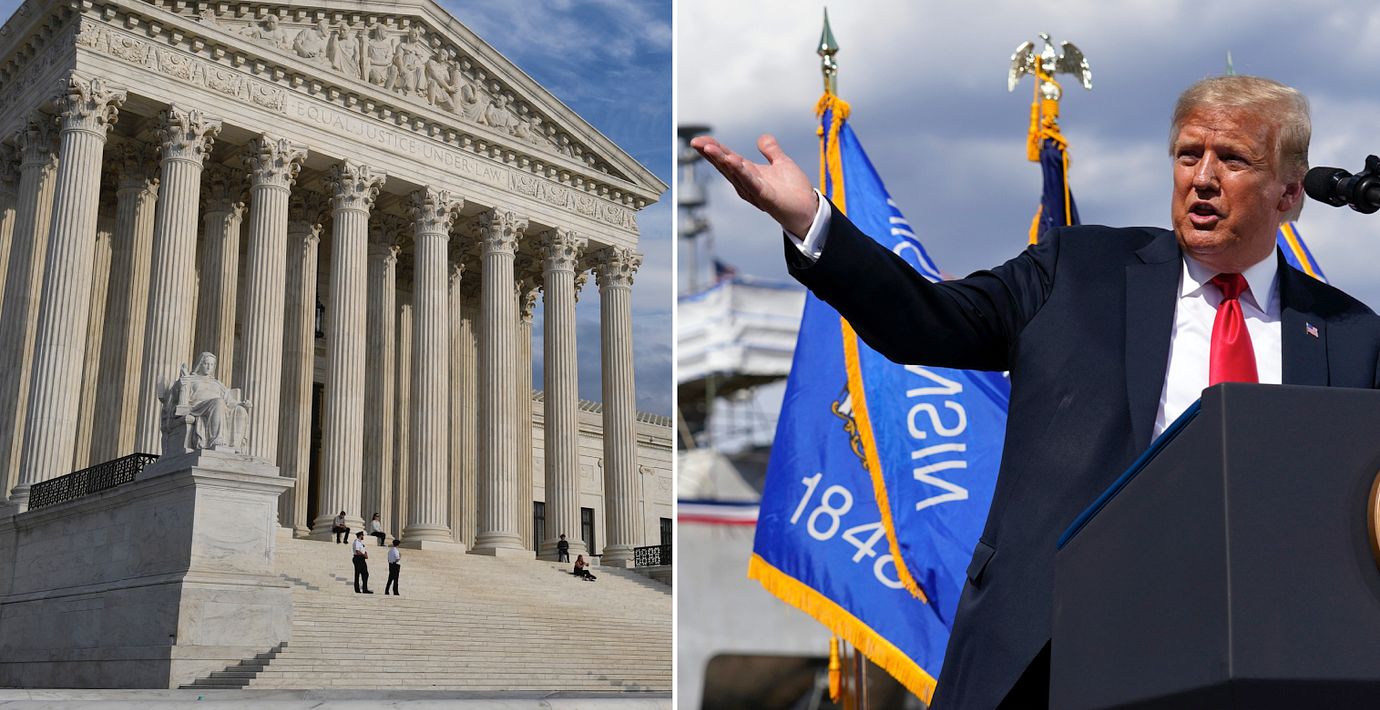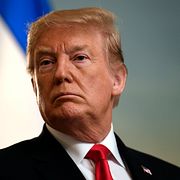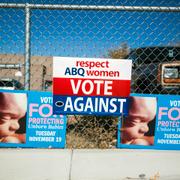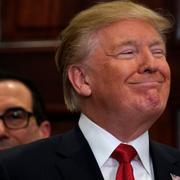
Donald Trump vill bli kvitt Obamacare via domstolen
Trumpadministrationen vill försöka avskaffa Obamacare genom ett beslut från högsta domstolen, rapporterar amerikanska medier.
Lagen, som berör tiotals miljoner amerikaner, innebar till en början att den som inte skaffade sig en sjukförsäkring straffades via skattesedeln.
Men 2017 avskaffades straffskatten efter ett beslut i kongressen, vilket innebar att en av hörnstenarna för Affordable care act, som lagen formellt heter, försvann.
Enligt justitiedepartementet innebär detta att Obamacare är oförenlig med konstitutionen. Därför vill man nu att Högsta domstolen prövar frågan.
bakgrund
Patient Protection and Affordable Care Act
Wikipedia (en)
The Patient Protection and Affordable Care Act, also known as the Affordable Care Act (ACA) or colloquially as Obamacare, is a United States federal statute enacted by the 111th United States Congress and signed into law by President Barack Obama on March 23, 2010. Together with the Health Care and Education Reconciliation Act of 2010 amendment, it represents the U.S. healthcare system's most significant regulatory overhaul and expansion of coverage since the passage of Medicare and Medicaid in 1965.PPACA's major provisions came into force in 2014. By 2016, the uninsured share of the population had roughly halved, with estimates ranging from 20 to 24 million additional people covered. The law also enacted a host of delivery system reforms intended to constrain healthcare costs and improve quality. After the law went into effect, increases in overall healthcare spending slowed, including premiums for employer-based insurance plans.The increased coverage was due, roughly equally, to an expansion of Medicaid eligibility and to changes to individual insurance markets. Both received new spending, funded through a combination of new taxes and cuts to Medicare provider rates and Medicare Advantage. Several Congressional Budget Office reports said that overall these provisions reduced the budget deficit, that repealing PPACA would increase the deficit, and that the law reduced income inequality by taxing primarily the top 1% to fund roughly $600 in benefits on average to families in the bottom 40% of the income distribution.The act largely retained the existing structure of Medicare, Medicaid and the employer market, but individual markets were radically overhauled. Insurers were made to accept all applicants without charging based on pre-existing conditions or demographic status (except age). To combat the resultant adverse selection, the act mandated that individuals buy insurance (or pay a fine/tax) and that insurers cover a list of "essential health benefits".
Before and after enactment PPACA faced strong political opposition, calls for repeal and legal challenges. In National Federation of Independent Business v. Sebelius, the Supreme Court ruled that states could choose not to participate in PPACA's Medicaid expansion, although it upheld the law as a whole. The federal health exchange, HealthCare.gov, faced major technical problems at the beginning of its rollout in 2013. Polls initially found that a plurality of Americans opposed the act, although its individual provisions were generally more popular and the law gained majority support by 2017.
Omni är politiskt obundna och oberoende. Vi strävar efter att ge fler perspektiv på nyheterna. Har du frågor eller synpunkter kring vår rapportering? Kontakta redaktionen


